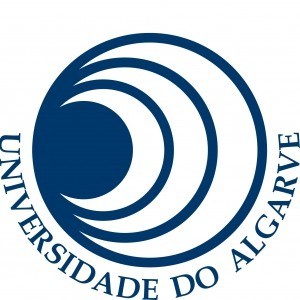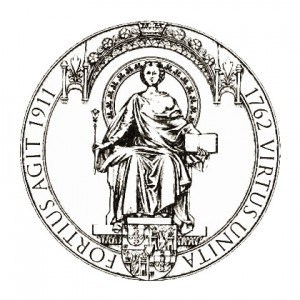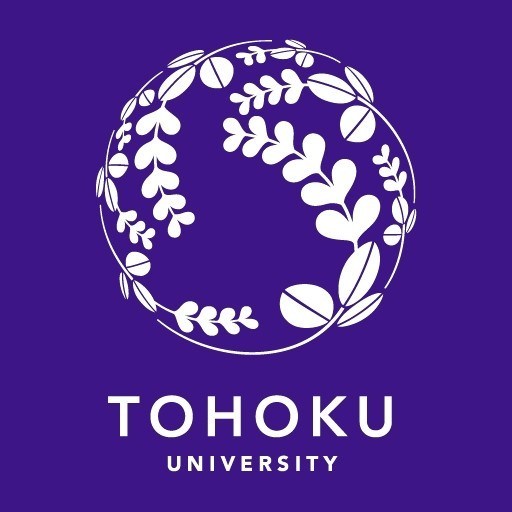Photos of university / #ualg_universidadedoalgarve
The Bachelor's Degree in Chemical Innovation and Regulation at the University of Algarve offers students a comprehensive education in the principles of chemistry combined with a focus on innovative chemical processes and regulatory frameworks. Designed to prepare future professionals for the evolving chemical industry, this program emphasizes both theoretical knowledge and practical skills essential for ensuring safety, sustainability, and compliance in chemical production and application. Throughout the course, students will explore areas such as chemical synthesis, waste management, product development, quality control, and environmental impact assessment. The curriculum integrates advanced topics in green chemistry, eco-design, and risk assessment, aligning with contemporary industry demands for sustainable and responsible chemical innovation. Additionally, students receive specialized training in regulatory affairs, gaining understanding of legal standards, safety protocols, and ethical considerations governing chemical substances and processes across different markets globally. The program promotes multidisciplinary learning, combining chemistry, environmental science, law, and economics to foster a holistic approach to chemical regulation and innovation. Practical experience is a core component, with laboratories, internships, and project work designed to simulate real-world scenarios faced by chemical professionals. Graduates from this program will be equipped with the knowledge to contribute effectively to industries such as pharmaceuticals, cosmetics, food, and environmental management, as well as regulatory agencies and consultancy firms. Emphasizing both scientific rigor and practical relevance, the Bachelor's Degree in Chemical Innovation and Regulation aims to develop responsible professionals capable of leading sustainable and compliant chemical initiatives in a global context.
The Bachelor’s degree in Chemical Innovation and Regulation at the University of Algarve is a comprehensive program designed to prepare students for the dynamic fields of chemical development, safety, and regulation. Throughout the course, students will gain a deep understanding of chemical processes, innovative techniques in chemical engineering, and the regulatory frameworks necessary to ensure compliance and safety in the chemical industry. The curriculum combines theoretical knowledge with practical applications, equipping students with the skills to develop new chemical products, improve existing formulations, and ensure environmental sustainability.
The program starts with foundational courses in general chemistry, organic and inorganic chemistry, physical chemistry, and mathematics. These courses lay the groundwork for understanding complex chemical reactions and processes. As students progress, they explore specialized modules such as chemical process engineering, nanotechnology, green chemistry, and sustainable chemical practices, emphasizing innovation and environmental responsibility. Significant emphasis is placed on the regulation of chemicals, including laws, standards, and risk management related to chemical safety, waste management, and product labeling.
Laboratory sessions and practical workshops are integral to the program, providing hands-on experience in chemical analysis, process simulation, and quality control. Students also engage in projects that simulate real-world scenarios, fostering problem-solving skills and critical thinking. The curriculum includes internships and industry collaborations, allowing students to gain valuable experience and insight into the professional chemical environment.
The program also emphasizes the importance of ethical practices and the societal impact of chemical innovation. Students will study the development and regulation of chemicals used in pharmaceuticals, cosmetics, food additives, and industrial applications, ensuring they understand the importance of safety standards and regulatory compliance. Graduates will be prepared for careers in chemical research and development, regulatory consultancy, quality assurance, and environmental safety.
Overall, the Bachelor’s degree in Chemical Innovation and Regulation at the University of Algarve offers a balanced education that merges scientific principles with regulatory knowledge, preparing students to become professionals who can innovate responsibly within the global chemical industry.
Program requirements for the Chemical Innovation and Regulation Bachelor's degree at the University of Algarve typically include a combination of core coursework, elective subjects, practical training, and a final project. Prospective students are generally expected to hold a high school diploma or equivalent qualification with strong grades in science and mathematics subjects. Proficiency in English may be required, demonstrated through standardized testing or prior education in English. International applicants might need to provide proof of language competence and may also be subject to additional visa or admission procedures. A minimum entrance score determined by national or university-specific criteria can be a prerequisite. The program emphasizes foundational knowledge in chemistry, chemical engineering principles, and regulatory frameworks, which students acquire through lectures, laboratories, and seminars. To promote practical skills, students often undertake internships in industrial or regulatory environments, gaining firsthand experience in chemical safety, environmental impact assessments, and compliance procedures. Successful completion of coursework, practical modules, and the final thesis or project are essential to graduate. The program's admission may favor applicants with prior coursework or experience in related fields such as environmental science, pharmacy, or chemical engineering. Additionally, some programs may require letters of recommendation or personal statements outlining motivation and interest in chemical regulation and innovation. Overall, the program aims to produce graduates equipped with the technical knowledge, regulatory understanding, and ethical perspective necessary to innovate within the chemical industry while ensuring safety and environmental sustainability.
The Financing of the Chemical Innovation and Regulation program at the University of Algarve is designed to be accessible and accommodating for a diverse student body. The program offers a range of funding options, including government scholarships, university grants, and external financial aid opportunities aimed at supporting both domestic and international students. Prospective students are encouraged to explore several avenues for financial support, such as Portuguese public scholarships for higher education, which are often awarded based on academic merit and financial need. Additionally, the university itself provides various scholarships and bursaries that students can apply for, aimed at promoting inclusivity and supporting excellence in academic performance.
Students are also advised to seek external funding sources, including European Union grants, private foundations, and corporate sponsorships, which may be available for students interested in specializing further in chemical regulation and innovation. The university’s financial aid office offers detailed guidance to assist applicants in navigating the application processes for these funds, as well as information on eligibility criteria and deadlines. Tuition fees for the program are competitive and are structured to ensure affordability while maintaining high educational standards. Financial planning resources are provided to help students budget effectively throughout their studies, including information on part-time work options and installment payment plans.
International students can benefit from specific scholarships designed to attract talent from abroad, and assistance is available for visa procedures related to financial proof requirements. The University of Algarve also emphasizes the importance of research grants and project funding for students involved in research activities within the program, offering grants that can cover equipment, travel, and conference participation. Overall, the financial support framework for the Chemical Innovation and Regulation program is robust, aiming to facilitate access to quality education without undue financial burden, thereby fostering the development of professionals equipped to lead innovation and regulation in the chemical sector.
The Bachelor's degree in Chemical Innovation and Regulation at the University of Algarve is a comprehensive program designed to prepare students for a career in the chemical industry, focusing on the development, regulation, and safety of chemical products. The curriculum integrates fundamental principles of chemistry with specialized topics such as chemical safety, environmental protection, regulatory frameworks, and innovative chemical processes. Students gain a solid foundation in organic, inorganic, and physical chemistry, alongside training in chemical analysis, quality control, and sustainable practices. The program emphasizes the importance of regulatory compliance, environmental impact assessment, and responsible innovation in chemistry. Through a combination of theoretical coursework and practical laboratory sessions, students develop essential skills for designing and testing new chemical products while ensuring their adherence to national and international safety standards.
In addition to technical knowledge, the program places a strong emphasis on communication and teamwork, facilitating interdisciplinary collaboration with professionals in related fields such as environmental science, toxicology, and regulatory affairs. Part of the course includes internships and practical projects that offer real-world experience within companies, regulatory agencies, or research institutions. This practical approach aims to prepare graduates to work effectively in areas such as quality assurance, product certification, environmental monitoring, and chemical safety assessment.
The degree program also explores emerging areas such as green chemistry, sustainable development, and the circular economy, aligning with global efforts to reduce environmental impact and promote sustainable industry practices. Graduates of this program are equipped to pursue careers in regulatory bodies, chemical manufacturers, environmental consulting firms, and research & development departments, or to continue their education through master's or doctoral studies in related fields. Overall, the program seeks to foster professionals who are knowledgeable not only in chemical innovation but also in ethical, environmental, and regulatory considerations, contributing responsibly to advancements in the chemical sector.










